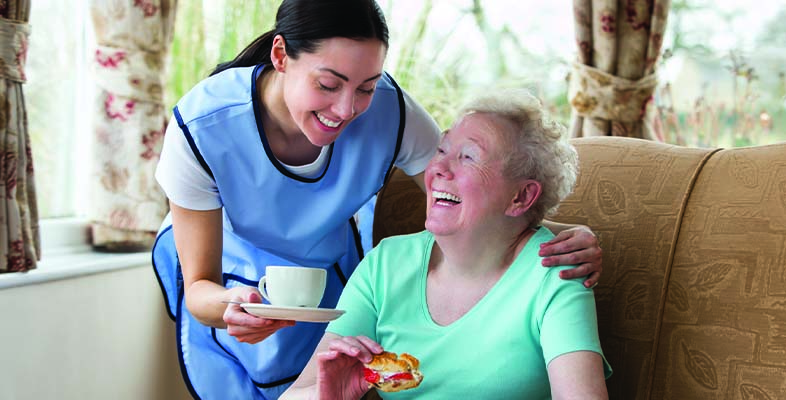Home » Course Layouts » Free Course Layout Udemy
Caring for adults is an introductory course for anyone in a caring role, either paid or unpaid. It builds on what you already know to give you a better understanding of your role as a carer.
0
63
English
English [CC]
FREE
- Learn basic syntax that can apply to any language.
- Learn what is a programming language and the basic concepts for beginners.
- Understand what is Javascript in it's truest form.
- Know the basic syntax of Javascript.
- Know some hidden quirks in Javascript.
Description
It also supports your own well-being by giving you some ideas and information about looking after yourself and dealing with stress.
Earn this free Open University digital badge if you complete this course! The badge can be displayed, shared and downloaded as a marker of your achievement. The badge is awarded for completing the course and passing the quizzes.
Course learning outcomes
After studying this course, you should be able to:
- Describe the role and responsibilities of carers
- Recognise some of the basic concepts that will enable a person-centred approach to care
- Identify the different needs of a cared-for person, at different stages of their care
- Understand the impact that caring may have upon carers, and how this might be managed
- Explain some of the legal responsibilities within the caring role.
Course content
-
- Introduction 00:10:00
- Learning outcomes 00:10:00
-
- Barriers to communication 00:15:00
- How do things go wrong? 00:10:00
- Developing your interpersonal skills 00:10:00
- What are interpersonal skills? 00:15:00
- Ways to communicate better 00:15:00
- Dementia 00:10:00
- People with learning disabilities 00:20:00
- Introduction 00:15:00
- Learning outcomes 00:05:00
- Types of mental health problems 00:15:00
- Mood disorders 00:15:00
- Anxiety disorders 00:15:00
- Psychosis 00:15:00
- Dementia 00:10:00
- Other disorders 00:15:00
- Experiencing mental health problems 00:15:00
- Carer experience 00:10:00
- Relationships and engagement 00:10:00
- Key points from Section 2 00:10:00
- Further information (optional) 00:10:00
- Section 2 quiz 00:10:00
- References 00:10:00
- Acknowledgements 00:15:00
- Section 2 quiz 00:10:00
- Maximising quality of life 00:15:00
- Palliative care for children 00:15:00
- End-of-life care 00:15:00
- Approaching death 00:10:00
- Advanced care plans 00:15:00
- Signs that death is near 00:20:00
- Key points from Section 3 00:15:00
- Section 3 quiz 00:15:00
- References 00:20:00
- Acknowledgements 00:15:00
- Section 3 quiz 00:15:00
- Mental capacity 00:15:00
- The Mental Capacity Act 2005 00:10:00
- Assessing mental capacity 00:15:00
- Mental capacity and decision making 00:15:00
- Least restrictive practice 00:15:00
- Deprivation of liberty and restrictions 00:15:00
- The search for the least restrictive option 00:10:00
- Introduction 00:15:00
- Learning outcomes 00:05:00
- Coping with stress 00:10:00
- What is stress? 00:15:00
- How do you respond to stress? 00:15:00
- How to manage stress 00:15:00
- Person-centred care and self-management 00:10:00
- Providing the right kind of support 00:15:00
- different approach to support 00:10:00
- Where to find support 00:15:00
- Key points from Section 5 00:10:00
- Further information (optional) 00:10:00
- Section 5 quiz 00:10:00
- References 00:15:00
- Acknowledgements 00:15:00
- Section 5 quiz 00:10:00
N.A
- 5 stars0
- 4 stars0
- 3 stars0
- 2 stars0
- 1 stars0
No Reviews found for this course.
Instructor
Open University UK
4.8
4.8
14
43384
1068
Explore Free Courses
Access valuable knowledge without any cost.
{"title":"","show_title":"0","post_type":"course","taxonomy":"course-cat","term":"engineering-skills,health-and-safety","post_ids":"","course_style":"free","featured_style":"course6","masonry":"","grid_columns":"clear4 col-md-3","column_width":"268","gutter":"30","grid_number":"4","infinite":"","pagination":"","grid_excerpt_length":"20","grid_link":"1","grid_search":"0","course_type":"","css_class":"","container_css":"","custom_css":""}










